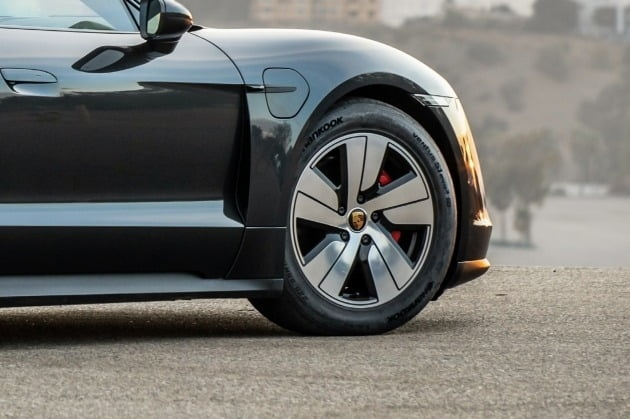Tire makers
Korean tire makers to raise prices on higher costs
Hankook, Kumho and Nexen to hike in Europe, North America; Japanese makers to increase
By Jan 18, 2022 (Gmt+09:00)
2
Min read
Most Read
LG Chem to sell water filter business to Glenwood PE for $692 million


Kyobo Life poised to buy Japan’s SBI Group-owned savings bank


KT&G eyes overseas M&A after rejecting activist fund's offer


StockX in merger talks with Naver’s online reseller Kream


Mirae Asset to be named Korea Post’s core real estate fund operator



South Korea’s three leading tire makers joined the global industry’s plans to raise product prices to maintain profitability amid higher shipping and raw materials costs.
The country’s top Hankook Tire & Technology Co. is set to increase replacement tires in Europe by 4-5% in January and February from the second half of last year, according to industry sources on Tuesday. Hankook decided to ramp up prices by 6% in North America next month.
Kumho Tire Co., South Korea’s No. 2 player, is set to jack up prices in Europe by 5% in the first quarter, while Nexen Tire Corp. is slated to raise about 6% both in Europe and North America next month.
Last year, the three companies already lifted tire prices in overseas markets by some 5% in two hikes. They raised prices in South Korea by 3-10% in February 2021, for the first time in four years.
HIGHER RUBBER, SHIPPING COSTS
The global tire industry rushed to raise product prices. Japanese tire maker Bridgestone Corp. recently announced a plan to raise an average of 7% in April, for the first time since August 2019. Toyo Tire & Rubber Co., Sumitomo Rubber Industries Ltd. and Yokohama Tire Corp. also unveiled decisions to raise prices in the January-April period.
“If a company raises prices in the tire industry, everyone usually follows the move,” said an industry source. “Other companies such as Continental and Goodyear have no reason to maintain the current prices.”
Tire price hikes came as prices of natural rubber that consists of 20-30% of total product costs resumed rises. Osaka Exchange’s rubber futures on Monday traded at 230.9 yen ($2) per kilogram. The rubber futures in September last year were around 187 yen a kilogram.
Shipping costs hovered around all-time highs. The Shanghai Containerized Freight Index (SCFI) hit a record of 5,109.6 on Jan. 7. Such high freight rates hurt tire makers since the industry ships tires only on container ships due to their heavy volume. The ongoing automotive chip shortage continued to disrupt automobile production, denting tire makers’ profitability.
“It will be delayed to improve profitability since they paid higher costs first then raise product prices,” said Lee Sang-hyun, an analyst at IBK Securities Co.
Write to Hyung-Kyu Kim at khk@hankyung.com
Jongwoo Cheon edited this article.
More to Read
-

-
 Korean chipmakersSamsung in talks to supply customized HBM4 to Nvidia, Broadcom, Google
Korean chipmakersSamsung in talks to supply customized HBM4 to Nvidia, Broadcom, GoogleApr 30, 2025 (Gmt+09:00)
-
 EnergyLS Cable breaks ground on $681 mn underwater cable plant in Chesapeake
EnergyLS Cable breaks ground on $681 mn underwater cable plant in ChesapeakeApr 29, 2025 (Gmt+09:00)
-
 Business & PoliticsUS tariffs add risk premium to dollar assets: Maurice Obstfeld
Business & PoliticsUS tariffs add risk premium to dollar assets: Maurice ObstfeldApr 29, 2025 (Gmt+09:00)
-

Comment 0
LOG IN


